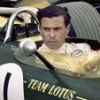ensign14, on 13 Oct 2024 - 23:03, said:
The Football League was not genuine competition as the member teams locked up most of the available Saturdays with their self-selected cartel. The first 12 clubs were NOT the best 12 clubs in England - 4 of the clubs (Stoke, Notts Co, Derby Co, Everton) would have struggled to be in the top 30 (weren't even the biggest clubs in their respective towns), but they had big grounds near railway stations, and Accrington got in because other Lancashire sides wanted another derby.
The Euroleague would eventually have deracinated from the rest of football. Look at the multiclub model. That should have been banned long long long ago but some **** would say it was anti-competitive and the ECJ would have done its usual wank job.
I am happy to defer to your knowledge of 19th century English football. 
You won't find me sympathetic to UEFA or FIFA. The multi-club model is problematical, although not as bad as Red Bull's owning two F1 teams that ought to be competing directly against each other in every single race and ought not to be sharing technical information.
Re the Super League, I'm not sure how you are applying 'deracinated'. If it is that, via the Super League, eventually the biggest teams would leave their own domestic leagues and compete exclusively in the SL, would that be altogether bad? Yes, the domestic leagues would lose many of their local derbys, and we would no longer have those delicious moments when a small underdog club beats one of the big, rich ones. At the same time, however, competition in the domestic leagues would be less unfair and more uncertain (i.e., more competitive), and in the SL there would be a new parallel competition with its own dramas. The real problem with professional football is the huge imbalance of wealth amongst the teams, not the present or proposed league structure.
In any case, I don't think the fact that football is badly governed is justification for motor sport to be badly governed. Football is called the 'people's sport', a recognition that, although the clubs may in some countries be privately owned, the sport overall is an integral part of those countries' cultural lifeblood and as such is a public good, not exclusively private property. Motor sport, and especially Formula One, has a similar quality, albeit to a less extreme extent.
It very much appears that the Commercial Rights Holder has usurped or been handed over powers that rightfully belong to the non-commercial governing body. To put it another way, the Commercial Rights Holder should not be the governing body. Teams are private property and broadcasting rights are private property, but sport is not private property.
























